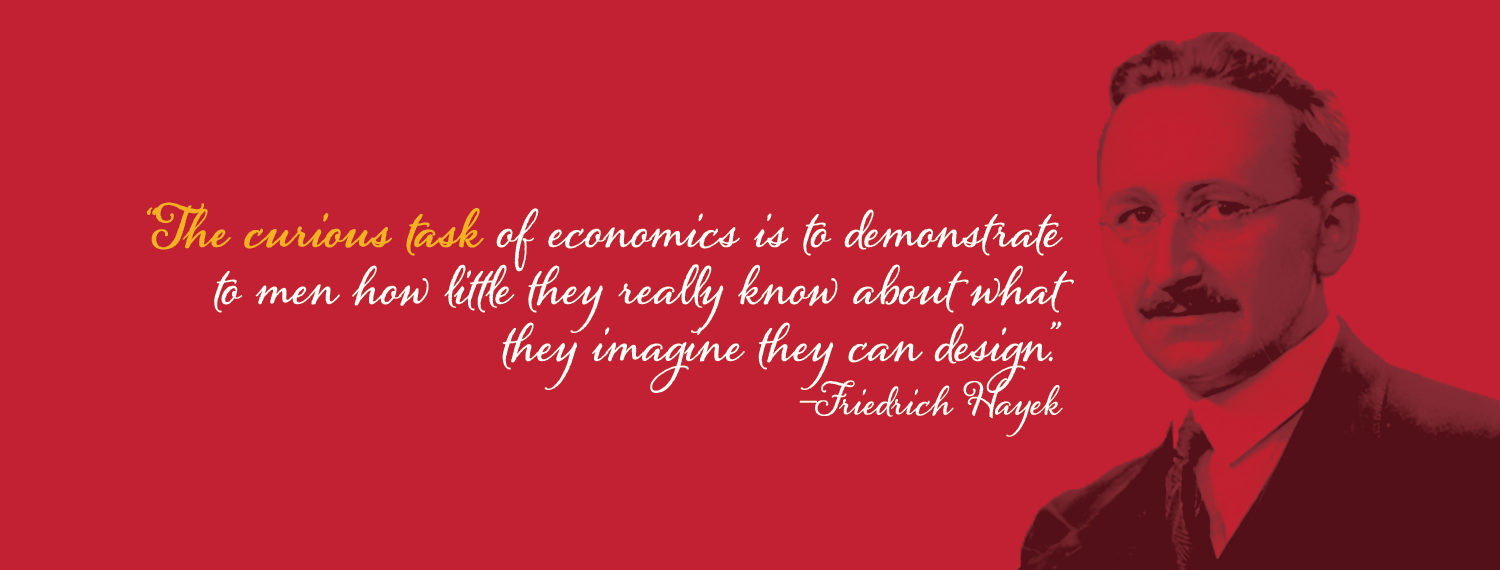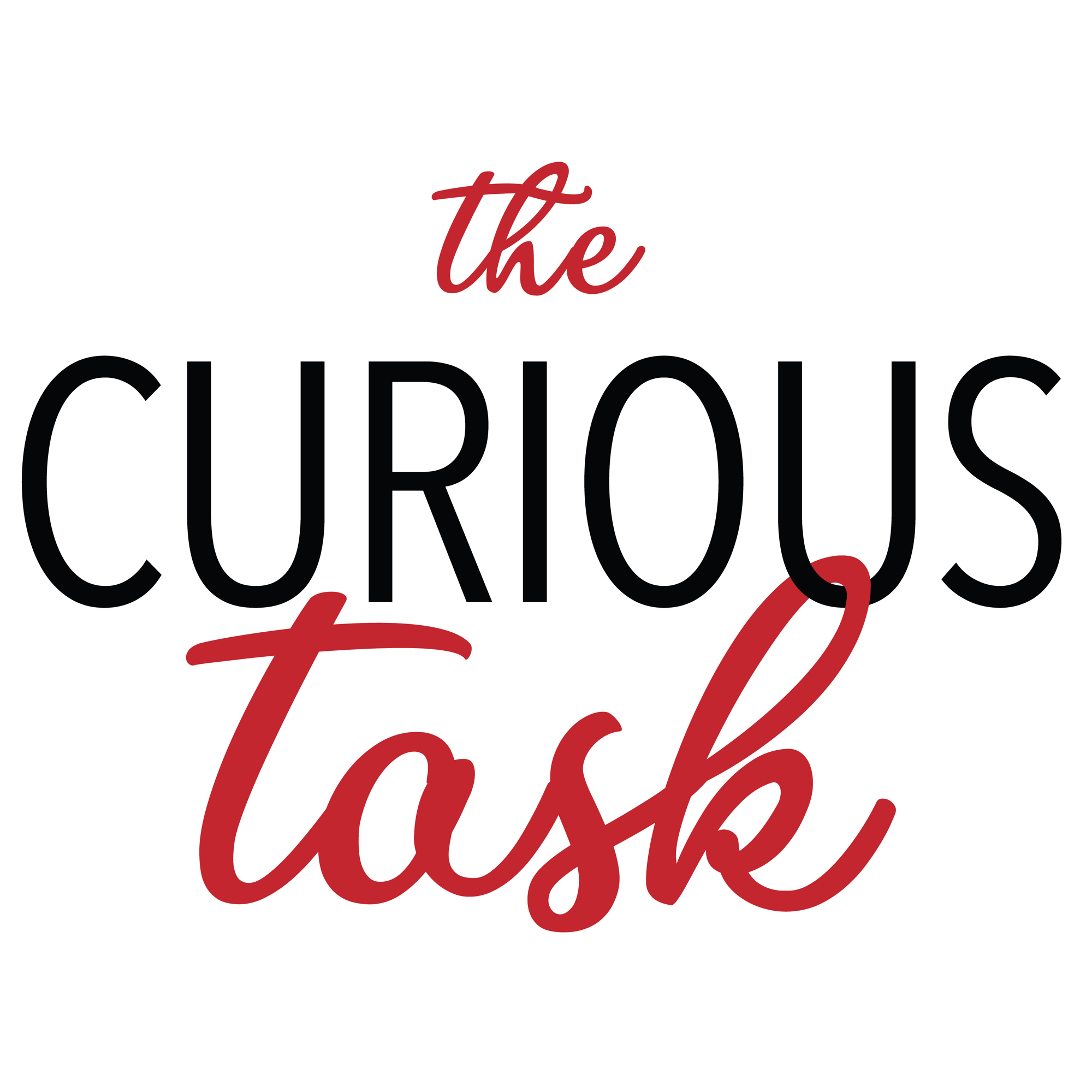Episodes
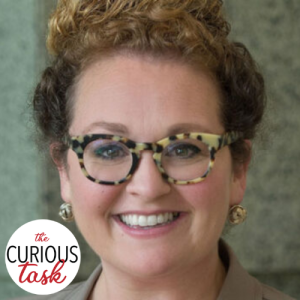
Wednesday Sep 14, 2022
Rachel Davison Humphries - What Is Education For A Free Society?
Wednesday Sep 14, 2022
Wednesday Sep 14, 2022
Sabine speaks with Rachel Davison Humphries about various schools of thought in the study of education and how they may offer alternatives to learning more compatible with a free society.

Wednesday Sep 07, 2022
Sarah Skwire - Can Literature Influence Liberalism?
Wednesday Sep 07, 2022
Wednesday Sep 07, 2022
Sabine speaks with Sarah Skwire about the role of liberalism in literature and ways in which all forms of literature can influence our ideas about markets, trust, and the value of others.
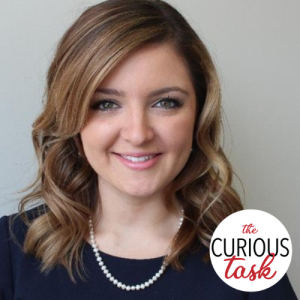
Wednesday Aug 31, 2022
Paige MacPherson - What Does School Choice Look Like?
Wednesday Aug 31, 2022
Wednesday Aug 31, 2022
Alex speaks with Paige MacPherson about school choice - and the lack thereof - in each of Canada's provinces today.
References
1. Paige’s articles, The Fraser Institute
Link: https://www.fraserinstitute.org/profile/paige-macpherson
2. Paige’s Blog
Link: https://www.paigetmacpherson.com/blog
3. “Public, private, and charter schools: How they compare” by Understood
Link: https://www.understood.org/en/articles/public-private-and-charter-schools-how-they-compare
4. “Explore: The Canadian education system by province and territory” by Future Learn
Link: https://www.futurelearn.com/info/futurelearn-international/canada-public-education-by-province

Wednesday Aug 24, 2022
Emily Chamlee-Wright - Why Work To Advance Liberalism?
Wednesday Aug 24, 2022
Wednesday Aug 24, 2022
Alex speaks with Emily Chamlee-Wright about what exactly liberalism is and why it is worth defending in a world that can no longer take it for granted.
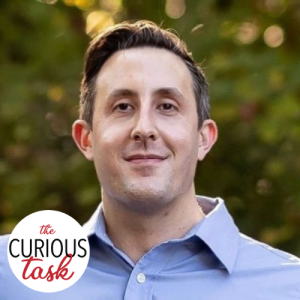
Wednesday Aug 17, 2022
Chris Freiman - Why Not Anarchism?
Wednesday Aug 17, 2022
Wednesday Aug 17, 2022
Alex speaks with Chris Freiman about ideal theory and the case for no state being the best state in a perfect world.
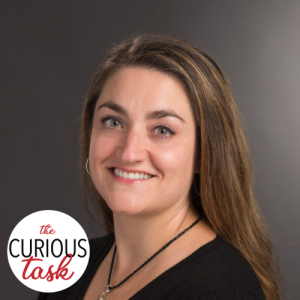
Wednesday Aug 10, 2022
Lauren Hall - How Do Libertarians Approach The Family?
Wednesday Aug 10, 2022
Wednesday Aug 10, 2022
Alex speaks with Lauren Hall about the unique approach that libertarians and classical liberals take when it comes to questions of consent, rights, and agency with respect to family and children.
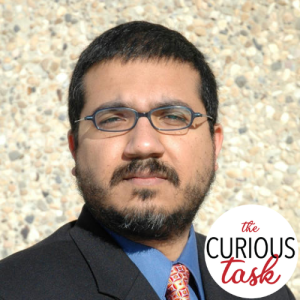
Wednesday Aug 03, 2022
Moin Yahya - What Is Inflation Really?
Wednesday Aug 03, 2022
Wednesday Aug 03, 2022
Alex speaks with Moin Yahya about debates both new and old surrounding the causes and history of inflation.
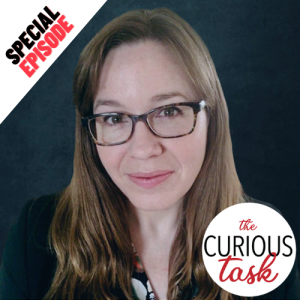
Wednesday Jul 27, 2022
Jen Dirmeyer - What Do Markets Do For Us?
Wednesday Jul 27, 2022
Wednesday Jul 27, 2022
Alex Aragona speaks with Jen Dirmeyer as she explores what markets do for us and the different ways they impact our lives.
References
1. “The Use of Knowledge in Society” by Freidrich August von Hayek
Link: https://www.cato.org/sites/cato.org/files/articles/hayek-use-knowledge-society.pdf
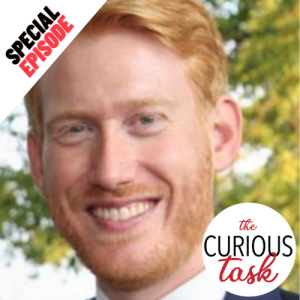
Wednesday Jul 20, 2022
Graeme Thompson - What Is Canadian Liberalism?
Wednesday Jul 20, 2022
Wednesday Jul 20, 2022
Alex Aragona speaks with Graeme Thompson about the classical liberal tradition in Canada, and what the evolution of that tradition has looked like.
References
- A collection of the speeches of Wilfred Laurier can be found in an edited edition by Arthur Milnes, available from Amazon here.
- Macdonald Laurier and the Election of 1891 by Christopher Pennington can be found from Penguin House here.
- Graeme Thompson’s piece “Whatever Happened to Laurier” can be found in the National Post here.
- Graeme mentions positive and negative liberty by Isaiah Berlin, which is discussed on the Stanford Encyclopedia of Philosophy here.
- The works of Adam Smith, Edmund Burke, and J.S. Mill can be read for free through the Online Library of Liberty.
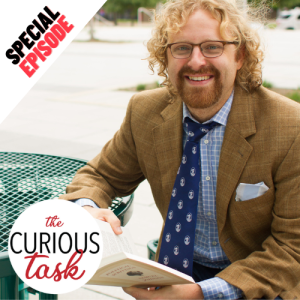
Wednesday Jul 13, 2022
Peter Jaworski — What Is Libertarianism?
Wednesday Jul 13, 2022
Wednesday Jul 13, 2022
Alex Aragona speaks with Peter Jaworski as he explores his definition of libertarianism, and how different kinds of morality can lead to certain conclusions about libertarian institutions.
References
- Peter Jaworski is the co-author of the book, Markets without Limits: Moral Virtues and Commercial Interests, which is available for purchase on Amazon Canada at this link.
- Peter mentions B. van der Vossen’s article on self-ownership published on Stanford Encyclopedia of Philosophy, which can be read here. The general article on libertarianism starts at this link.
- You can read more about Jonathan Haidt’s moral foundations theory on the website, moralfoundations.org.
- Peter mentions the three-way division between people cited in Jason Brennan’s book, Against Democracy, which is also available on Amazon Canada at this link.
- This article on libertarianism.org captures David Hume’s is-ought dichotomy that was briefly mentioned by Peter during the podcast.
- The Acton Institute publishes many articles that demonstrate how their theological views endorse libertarian institutions on their website, acton.org.
- You can read John Stuart Mill’s libertarian conclusions in On Liberty at this link.
- Peter mentions Chris Freiman during the episode, who has published blogposts on learnliberty.org.
- You can read more about the natural rights argument of Thomas Jefferson’s famous quote, “life, liberty, and the pursuit of happiness” in this article on libertarianism.org.
- The Lockean-Nozick justification of property rights has also been written about in this article on libertarianism.org.
- Here is the link to Ayn Rand’s book, The Virtue of Selfishness, that explores the concept of ethical egoism.
- Michael L. Frazer has a book on Adam Smith’s theory of sentimentalism and how it departs from that of David Hume, which can be accessed here.
- You can purchase Michael Huemer’s book, Ethical Institutionalism, that was recommended by Peter at this link.
- Jan Narveson makes a contractarian case for libertarianism in this article on libertarianism.org.
- Here is Roderick Long’s article, Eudaimonist Libertarianism, that was published on bleedingheartlibertarians.org.
- Dan Sanchez published an article called, In Defense of Mises’s Utilitarianism, through the Mises Institute and is available for reading here.
- Here is Kevin Vallier’s article, A Rawlisan Case for Libertarianism, which also draws parallels to F. A. Hayek.
- You can explore Milton Friedman’s natural rights-oriented political philosophy in his book, Capitalism and Freedom, which can be purchased from Amazon Canada at this link.
- Here is a joint article by John Tomasi and Matt Zwolinski called, A Bleeding Heart History of Libertarianism, which was published in Cato Unbound and can be read at this link.
- This is a link to the Libertarian Party of the United States.
- Deirdre McCloskey elaborated on her idea of The Great Enrichment in this article published on the Foundation for Economic Education.
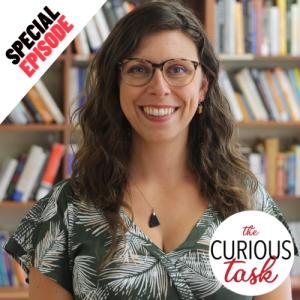
Wednesday Jul 06, 2022
Janet Bufton - Are Libertarians Liberals?
Wednesday Jul 06, 2022
Wednesday Jul 06, 2022
Alex Aragona speaks with Janet Bufton as she explores where and how the tenets of classical liberalism come into play for those who call themselves libertarians.
References from The Curious Task Special Episode 9 with Janet Bufton
- Janet Bufton manages the Liberal Studies Guides project and is a consultant at Adam Smith Works, whose websites have been hyperlinked.
- You can read more about Adam Smith’s thoughts on a system of natural liberty, the rules of commercial society, and the decisions people make at the Stanford Encyclopedia of Philosophy at this link.
- Follow this link to learn more about the non-aggression principle as libertarian philosophy.
- In the podcast, Janet mentions Adam Smith’s caution against business people who can turn economic power into political power to harm consumers. His argument against monopolies was summarized by Heinz D. Kurz in the article, Adam Smith on markets, competition, and violations of natural liberty, available here.
- Alex and Janet discuss how Milton Friedman identified differently overtime: early into his career he described himself as a neoliberal, which is evident in his essay, Neo-Liberalism and its Prospects, (The Curious Task also dedicated Episode 60 with Eric Schliesser to discussing neoliberalism) and later as a “liberal without adjectives” on The Donahue Show, and towards the end of life, he advocates for consequentialist freedom (all references hyperlinked).
- Like Milton Friedman, Murray Rothbard strongly identified as a libertarian (as evident in his work, For a New Liberty: The Libertarian Manifesto, which can be accessed at this link) but along with Rockwell was a pioneer of the paleo-libertarianism movement which aimed to unite traditional conservatives. Its origin story first featured in Rothbard’s essay, Right-Wing Populism: A Strategy for the Paleo Movement, which available for reading at this link.
- Here is the Wikipedia article for Ron Paul’s 2012 Presidential Campaign, where he ran with the Republican Party on principles such as anti-war but economic freedom.
- Robert Nozick coined the term “nightwatchman state” in his work, Anarchy, State, and Utopia, which can be purchased on Amazon Canada at this link.
- The Freeman was a libertarian magazine by the Foundation for Economic Education that was consulted by Ronald Reagan. Archives of the magazine can be accessed on the FEE’s website at this link.
- This link will direct you to a historical run-down of fusionism by Libertarianism.org.
- Janet references Steve Davies’s appearance to discuss the pandemic on Episode 45 of The Curious Task. If you would like a refresher on the topics covered in that episode, here is the link.
- More readings on cosmopolitanism are available at this link.
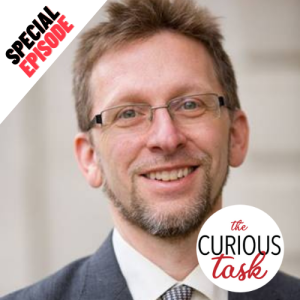
Wednesday Jun 29, 2022
Jacob Levy — What Is Academic Freedom?
Wednesday Jun 29, 2022
Wednesday Jun 29, 2022
As we shift into our break, our first special episode is one of our recent favourites, Alex's chat with McGill University professor Jacob Levy about how he looks at the issue of academic freedom.
References
1. “Rationalism, Pluralism, and Freedom” by Jacob Levy
Link: https://www.amazon.ca/Rationalism-Pluralism-Freedom-Jacob-Levy/dp/0198808917
2. “The Multiculturalism of Fear” by Jacob Levy
Link: https://www.amazon.ca/Multiculturalism-Fear-Jacob-T-Levy/dp/0198297122
3. Jacob Levy's Episodes on The Curious Task
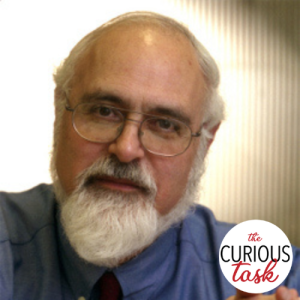
Wednesday Jun 22, 2022
Eric Mack - Why Read Anarchy, State and Utopia? (Part Two)
Wednesday Jun 22, 2022
Wednesday Jun 22, 2022
Alex speaks again with philosopher Eric Mack about "Anarchy, State and Utopia", this time touching on some of the challenges to Nozick's theory and Eric's own personal connection to Robert Nozick during his life.
References
1. Part 1 of Eric Mack’s The Curious Task Episode on “Why Read Anarchy, State, and Utopia?”
Link: https://thecurioustask.podbean.com/e/ep-145-eric-mack-why-read-anarchy-state-and-utopia/
2. Eric Mack’s Previous Episode “Why Not Socialism?” on the Curious Task Podcast
Link: https://thecurioustask.podbean.com/e/ep-7-eric-mack-%e2%80%94-why-not-socialism/
3. “Anarchy, State, and Utopia” by Robert Nozick
Link: https://www.amazon.ca/Anarchy-State-Utopia-Robert-Nozick/dp/0465051006
4. “Who Would Choose Socialism” by Robert Nozick
Link: https://reason.com/1978/05/01/who-would-chose-socialism/
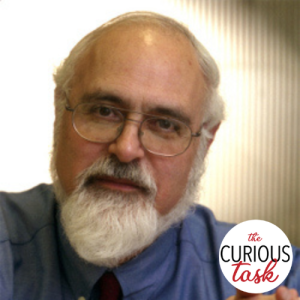
Wednesday Jun 15, 2022
Eric Mack - Why Read Anarchy, State and Utopia?
Wednesday Jun 15, 2022
Wednesday Jun 15, 2022
Alex speaks with Philosopher Eric Mack about Robert Nozick's "Anarchy State and Utopia" and how the book shaped the conversation around natural rights theory, philosophical libertarianism, and the study of political utopias for decades to come.
References
1. Eric Mack’s Previous Episode “Why Not Socialism?” on the Curious Task Podcast
Link: https://thecurioustask.podbean.com/e/ep-7-eric-mack-%e2%80%94-why-not-socialism/
2. “Anarchy, State, and Utopia” by Robert Nozick
Link: https://www.amazon.ca/Anarchy-State-Utopia-Robert-Nozick/dp/0465051006
3. “Robert Nozick” by Britannica
Link: https://www.britannica.com/biography/Robert-Nozick
4. “Murray Rothbard” by Mises Institute
Link: https://mises.org/profile/murray-n-rothbard
5. “A Theory of Justice” by John Rawls
Link: https://www.amazon.ca/Theory-Justice-Revised-John-Rawls/dp/0674000781
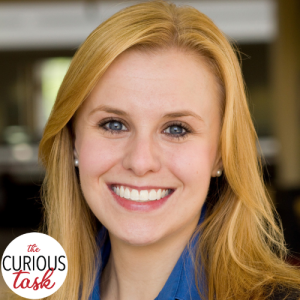
Wednesday Jun 08, 2022
Abigail Hall - How Does Government Propaganda Manufacture Militarism?
Wednesday Jun 08, 2022
Wednesday Jun 08, 2022
Alex speaks with Abigail Hall about propaganda - an elusive and at times far-reaching concept that can be found everywhere: from overt wartime speeches by presidents to covert uses of sports and film to promote the ends of state militarism.
References
1. “Manufacturing Militarism: U.S. Government Propaganda in the War on Terror” by Christopher J. Coyne and Abigail R. Hall
Link: https://www.amazon.ca/Manufacturing-Militarism-Government-Propaganda-Terror/dp/1503628361
2. “Tyranny Comes Home: The Domestic Fate of U.S. Militarism” by Christopher J. Coyne and Abigail R. Hall
Link: https://www.amazon.ca/Tyranny-Comes-Home-Domestic-Militarism/dp/1503605272
3. Abigail Hall’s Previous Episode on The Curious Task
4. “Keep Calm and Carry On” Poster
Link: https://en.wikipedia.org/wiki/Keep_Calm_and_Carry_On
5. “Uncle Sam” Poster
Link: https://en.wikipedia.org/wiki/Uncle_Sam
6. “Smith-Mundt Act” by US Agency for Global Media
Link: https://www.usagm.gov/who-we-are/oversight/legislation/smith-mundt/
7. “Dick Cheney” by Britannica
Link: https://www.britannica.com/biography/Dick-Cheney
8. “Biographies of Secretaries of State: Colin Powell (1937-2021)” by Office of the Historian
Link: https://history.state.gov/departmenthistory/people/powell-colin-luther
9. “Biographies of Secretaries of State: Condoleezza Rice (1954-)” by Office of the Historian
Link: https://history.state.gov/departmenthistory/people/rice-condoleezza
10. “Pat Tillman” by Britannica
Link: https://www.britannica.com/biography/Pat-Tillman
11. “The Life and Death of Phil Strub” by Spy Culture
Link: https://www.spyculture.com/the-life-and-death-of-phil-strub/
12. “Windtalkers” by IMDb
Link: https://www.imdb.com/title/tt0245562/
13. “Top Gun” by IMDb
Link: https://www.imdb.com/title/tt0092099/
14. "Transformers" by IMDb
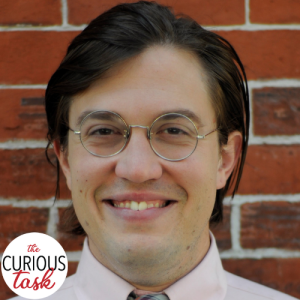
Wednesday Jun 01, 2022
Kevin Munger - Why Do Baby Boomers Still Dominate Politics and Culture?
Wednesday Jun 01, 2022
Wednesday Jun 01, 2022
Alex speaks with Kevin Munger about why the oft-parodied and dismissed subject of inter-generational conflict may help us to better understand current economic and policy trends in America and abroad.
References
1. “Generation Gap: Why the Baby Boomers Still Dominate American Politics and Culture” by Kevin Munger
Link: https://www.amazon.ca/Generation-Gap-Dominate-American-Politics/dp/B08ZK7YV47

Wednesday May 25, 2022
Stephen Davies — What is Global Catastrophic Risk?
Wednesday May 25, 2022
Wednesday May 25, 2022
Due to Ottawa's electricity grids being all but completely destroyed after the city was treated to a derecho over the long weekend, we were unable to use our devices to produce episodes or the internet to upload a new one. For now, please enjoy a timely re-release of our conversation with Stephen Davies on global catastrophic risk.
References
1. “Empiricism and History” by Stephen Davies
Link: https://www.amazon.com/Empiricism-History-Theory-Stephen-Davies/dp/0333964705
2. “A Dictionary of Conservative and Libertarian Thought” by Nigel Ashford and Stephen Davies
Link: https://www.amazon.com/Dictionary-Conservative-Libertarian-Routledge-Revivals/dp/0415670527
3. “Apocalypse Next: The Economics of Global Catastrophic Risk” by Stephen Davies
Link: https://www.amazon.ca/Apocalypse-Next-Economics-Global-Catastrophic/dp/0255368216
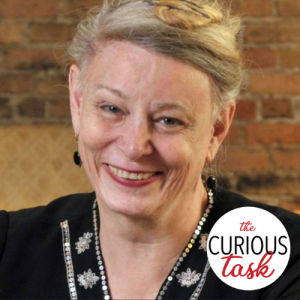
Wednesday May 18, 2022
Deirdre McCloskey - Why Does Liberalism Work?
Wednesday May 18, 2022
Wednesday May 18, 2022
Alex speaks with Deirdre McCloskey in a wide-ranging conversation that addresses the economic, philosophical, and political reasons why liberalism just works.
References
1. “Why Liberalism Works: How True Liberal Values Produce a Freer, More Equal, Prosperous World for All” by Dierdre Nansen McCloskey
Link: https://www.amazon.ca/Why-Liberalism-Works-Liberal-Prosperous/dp/0300235089
2. “The Bourgeois Virtues: Ethics for an Age of Commerce” by Dierdre Nansen McCloskey
Link: https://www.amazon.ca/Bourgeois-Virtues-Ethics-Age-Commerce/dp/0226556646
3. “Bourgeois Dignity: Why Economics Can’t Explain Modern World” by Dierdre Nansen McCloskey
Link: https://www.amazon.ca/Bourgeois-Dignity-Economics-Explain-Modern/dp/0226556743
4. “Bourgeois Equality: How Ideas, Not Capital or Institutions, Enriched the World”
Link: https://www.amazon.ca/Bourgeois-Equality-Capital-Institutions-Enriched/dp/022633399X
5. “Dierdre N. McCloskey presents the lecture ‘The Impossibility of Policy’ hosted by the Erasmus Forum” by the Cato Institute
6. “1984” by George Orwell
Link: https://www.amazon.ca/1984-George-Orwell/dp/0451524934
7. “Forever Flowing” by Vasily Grossman
Link: https://www.goodreads.com/book/show/88459.Forever_Flowing
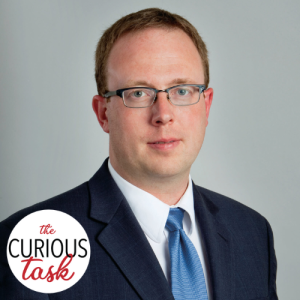
Wednesday May 11, 2022
Dwight Newman - How Can We Maintain The Rule Of Law In An Emergency?
Wednesday May 11, 2022
Wednesday May 11, 2022
Alex speaks with Dwight Newman, who encourages listeners to think critically about the use of emergency powers, the term "crisis", and recent events in the history of government limits on freedom and rights.
References
1. “The Duty to Consult: New Relationships with Aboriginal Peoples” by Dwight G. Newman
Link: https://www.amazon.ca/Duty-Consult-Relationships-Aboriginal-Peoples/dp/1895830370
2. “The Law of Canadian Constitution, 2nd Edition” by Guy Regimbald and Dwight Newman
3. “Parliamentary Committee Notes: Overview - Freedom Convoy 2022” by Public Safety Canada
Link: https://www.publicsafety.gc.ca/cnt/trnsprnc/brfng-mtrls/prlmntry-bndrs/20221013/03-en.aspx
4. “Canada’s Emergencies Act” by Department of Justice Canada
Link: https://www.canada.ca/en/department-justice/news/2022/02/canadas-emergencies-act.html
5. “Legislation” by Canadian Security Intelligence Services
Link: https://www.canada.ca/en/security-intelligence-service/corporate/legislation.html
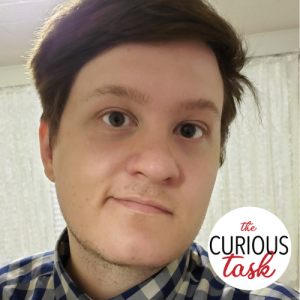
Wednesday May 04, 2022
Jason Lee Byas - How Should We Deal With Historic Injustice?
Wednesday May 04, 2022
Wednesday May 04, 2022
Alex speaks with Jason Lee Byas about the complexities of responding to questions of historic injustice, reparations, and compensation within a libertarian framework.
References
1. Articles by Jason Lee Byas, Center for a Stateless Society
Link: https://c4ss.org/content/author/jason-byas
2. “Rectification and Historic Injustice” by Jason Lee Byas
Link: https://philpapers.org/archive/BYARAH.pdf
3. “A Black Commons: A Framework for Recognition, Reconciliation, and Reparations” by Julian Agyeman and Kofi Boone
4. “Compensation for Historic Injustices: Completing the Boxill and Sher Argument” by Andrew I. Cohen
Link: https://www.jstor.org/stable/pdf/40212837.pdf
5. “Should Race Matter?: Unusual Answers to the Usual Questions” by David Boonin
Link: https://www.amazon.ca/Should-Race-Matter-Unusual-Questions/dp/0521149800
6. “The Ethics of Liberty” by Murray N. Rothbard
Link: https://www.amazon.ca/Ethics-Liberty-Murray-N-Rothbard/dp/0814775594
7. “Historical Rights and Fair Shares” by A. John Simmons
Link: https://www.jstor.org/stable/3505011
8. “The Multiculturalism of Fear” by Jacob Levy
Link: https://www.amazon.ca/Multiculturalism-Fear-Jacob-T-Levy/dp/0198297122
9. “Apologies and Moral Repair: Rights, Duties, and Corrective Justice” by Andrew I. Cohen
Link: https://www.amazon.ca/Apologies-Moral-Repair-Corrective-Justice/dp/0367508036
